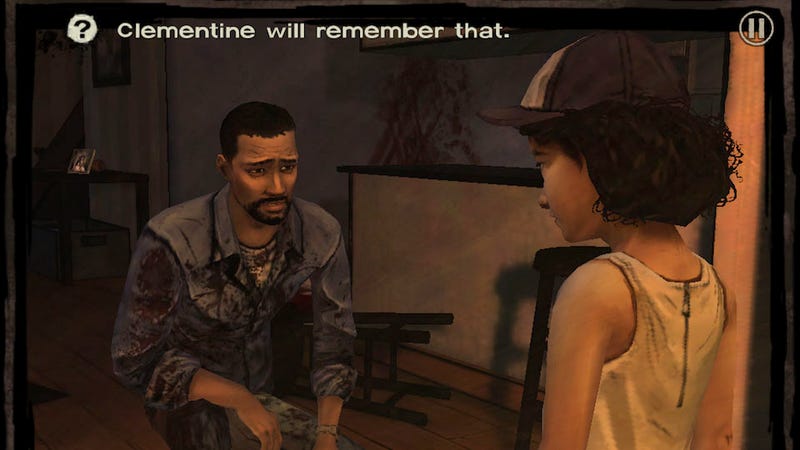A forewarning, this article contains spoilers for some Telltale games.
When we look at developers that appeared to have perfected the art of storytelling, many feel Telltale Games stands on top. For over a decade, Telltale’s library of stories ranged from Sam & Max, Back to the Future, and Batman to name a few. While their first games were point-and-click games, all that changed with The Walking Dead. While it was pointing and clicking, the biggest change came from the implication of “choices.” How each decision you make can drastically change the story later on. In Batman: The Enemy Within, the choices result in the Joker becoming the Joker or Batman’s vigilante partner in crime. Pick your poison.
In that final episode, you see how your choices made you either have an easy time or struggle. Telltale knows how to grab the player’s attention by allowing them to shape the story how they see fit. Want to be the good guy? Pick the right choices and see how kindness could screw you over later. Want to be the bad guy? Then go ahead, piss everyone off, and see how being a jerk can make things difficult. After twelve games, it is incredible the amount of work they’ve put into creating interactive stories.
Here’s the thing though, Telltale fans are questioning if their “cycle of storytelling” is repetitive. It isn’t to say that the quality of stories has gone down, but rather that the sequence has become a bit too predictable. Some would argue that if you play The Walking Dead and Batman it’s the same game with a different cast.
Press Left & B to Sock Catwoman in the kisser!
While we see QTEs in just about every game, does this mean that there should be something else to replace it? That’s difficult to say. It isn’t like these kinds of games are heart-pounding action sequences that you see in other games. At the same time, if it was all talk with no action, it would run the risk of leaving many bored. Quick time events are fun to watch unfold, but it can feel too simplistic by comparison to other game mechanics. Besides, we all know that isn’t the biggest issue with Telltale Games…
Do Your Choices Really Matter in Telltale Games?
Another trope that we see in Telltale Games is the importance of the choices you make. At certain parts of the story, the player must make an important choice that can greatly change how the story plays out. By choosing to save one character, you condemn the other. You can leave the murder weapon behind and someone may find it and use it against you. Or you can take the weapon and have someone discover it in your belongings. Every choice has a consequence and it isn’t like there is a “right path” and a “wrong path.”
Ever heard of the Two Guards, Two Doors Riddle? Well… Sometimes, you can say that both path leads to the same destination…
In that lies the biggest issue: there is no “correct path” since all roads lead to the same destination. Not that it makes the story predictable, but no matter what, the story will still play out as it will with the same ending. John Doe is still going to become Joker and attack Batman. Lee will not survive if you did or didn’t chop off his arm. Harvey Dent is going to get violent regardless if half his face gets burnt off or not. It can feel like the idea of giving players the ability to shape the story but the ending will still be the same. The path may split, but it finds a way to get back on course after the “important choices.”
The Illusion of Choice
As you adequately put, the problem is choice. But we already know what you are going to do, don’t we?
If we were to describe how Telltale games do their storytelling overall, it can be summarized in three words: illusion of choice.
The illusion of choice is a psychological mental model that states humans are happy if they believe that have control over their own actions and can exercise free will. If free will is deprived, he or she will become resentful, even if the choice forced upon him is identical to the one selected of their own accord.
Let’s look at other developers that also tell their own tales. Quantum Dreams definitely knows how to be storytellers through not only having different kinds of actions in their quick time events, but every chapter has consequences. If your character dies or gets killed, that’s it for them and we move on. And the ending can range from happy endings to unfortunate outcomes. The same thing can be said about Until Dawn or Oxenfree, where the choices you make can change what happens, character interaction, and if and how characters die.
You might want to choose carefully there Chris. The Butterfly Effect can be hilariously ironic if you choose unwisely…
This isn’t to say that Telltale needs to change the formula to reflect this, but one could argue that in some ways, they know exactly how to have a story that can matter from start to finish. Again, it isn’t that choices in Telltale don’t matter in comparison since they can still shape the story. The issue is that no matter where you go, the story will end the same for just about everyone because of one simple reason: the end of a Telltale game isn’t really… the end.
This Is Not Goodbye, I Know We’ll Meet Again
For as formulaic as it may be, there’s no denying that the demand is there. With each Telltale game, we get a new story of a new threat or problem that will reach a conclusion over the course of a year (if not six months). We get that connection with those characters and how your choices really do have an influence on them. The trick is how in some of those cases, it isn’t until the next game in the series do we see how they progress since the last time we saw them. The only issue one could argue about sequels is if you can say Clementine really was going to remember, or if Telltale was smart and made sure to not overlap the sequels with choices or actions that could counteract it.
 Will she? WILL SHE?!
Will she? WILL SHE?!
Regardless of whether or not if this was a well-hatched plan by Telltale writers, fans want to see more. It would be like if Harry Potter or Lord of the Rings only did one book and that was it. The demand is there for more and Telltale is happy to make more. We want to see how Clementine evolved from the little girl that learned how to survive in a world that just turned to hell. We want to see Bruce Wayne after the insanity of the first season. Can be a bit of sequel bait perhaps, but in the end, it isn’t like the stories got worse over time and by the support Telltale still gets, it is safe to say that it has grown substantially.
Conclusion: Agree/Disagree/Write Comment/…
So with everything said, is this all to say that TellTale has lost their touch with telling a story? Absolutely not. As mentioned before, TellTale definitely has an understanding of what they want to do and how they can tell their stories to gamers. As pointed out on top, Batman: The Enemy Within grabbed so many people’s attention with the representation of Joker and how you could actually turn him into an ally instead of an enemy. Yeah, you have to fight Joker at the end, but players did feel that connection for Joker and how they feel at fault for shaping Joker into the psychopath that we’ve come to know. As the saying goes: it’s not about the destination, it’s about the journey.
Overall, it can be rather difficult to figure out how to rework a formula that has worked so well in the past and continues to work well to this day. For all we know, the repetitiveness that many feel when playing Telltale games could be less about the method of storytelling and more on the IPs we’ve come to work with. After all, the final season of Telltale’s The Walking Dead is coming soon, and the long-awaited second season of The Wolf Among Us. The thing that has people’s attention though is that Telltale aren’t the only storytellers out there. With games like Life is Strange and Until Dawn, and upcoming games like Detroit: Become Human and Afterparty, players will have more choices themselves to consider when they want to pick their own adventure.
So What Do You Think?
Does Telltale Games need to update the formula a bit? Did Batman: The Enemy Within show they still got it? And what upcoming game are you excited to see from them? Be sure to leave your comments down below and follow us for more insightful editorials here on Culture of Gaming.
A special shout out to both Fan Bros, and Den of Geek who wrote similar articles on the storytelling of Telltale which did help to develop this editorial. Be sure to check them out in the links provided.












